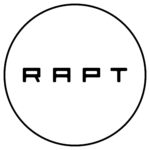 Market research and data can be an invaluable tool when crafting a brand strategy, providing brands with the power to harness their target market. Today, marketers have a multitude of choice of available data; however, being given a plethora of statistics does not necessarily translate into the ability to create a winning brand strategy. There is an art to using data to develop a brand’s personality and key messaging, and to finding the right channels through which to engage with consumer segments within a target market.
Market research and data can be an invaluable tool when crafting a brand strategy, providing brands with the power to harness their target market. Today, marketers have a multitude of choice of available data; however, being given a plethora of statistics does not necessarily translate into the ability to create a winning brand strategy. There is an art to using data to develop a brand’s personality and key messaging, and to finding the right channels through which to engage with consumer segments within a target market.
As an independent South African market research company that owns the local licence for Target Group Index (TGI), we at Ask Afrika realised that there is a disconnect between how market research and data could be used optimally and how they are actually being used.
To maximise the impact of research and data investments, it is just as important to know how to use them effectively as it is to know what kind of research to commission. As a result, Ask Afrika initiated a countrywide industry roadshow, which includes brand strategy workshops, to illustrate how brand plan frameworks can be applied to formulate data-driven marketing strategies. The roadshow also presented the new agency packages that are available.
 Maria Petousis, executive: TGI at Ask Afrika
Maria Petousis, executive: TGI at Ask Afrika
We ran a brand strategy workshop, using the TGI database, on 6 February 2019 at the African Pride Melrose Arch Hotel in Johannesburg, that was well attended by marketers, media agencies and media owners. The TGI database includes the opinions and perceptions of over 26-million South African consumers, and has access to over 8 000 brands, providing full demographics, attitudes and interests, as well as integrated media insights.
In the context of the current research landscape, many things have changed in the past two to three years and they continue to change, resulting in uncertainty by users of research. In addition, there is a high demand from agencies for this level of data.
The workshop kicked off by unpacking TGI and its place in the media and marketing industry. Marketers, media agencies and media owners all have different research requirements. Marketers are after demographic, lifestyle, psychographic and brand information that they can use to position their product offering and to brief agencies.
Media agencies want information on media, demographics and select lifestyles, but their biggest requirement is brand information. Media owners mostly want media information, market intelligence and brand information to share with media agencies. There is currently no easily accessible industry-wide research that provides in-depth brand information. The workshop was relevant for the South African marketing and media industry as TGI has the ability to provide extensive brand information, but there is a lack of understanding of how it can be used – and, because of the huge scope of what TGI offers, people are often put off by the price tag of the full annual licence, which they believe only the big brands can afford.
The workshop was relevant for the South African marketing and media industry as TGI has the ability to provide extensive brand information, but there is a lack of understanding of how it can be used – and, because of the huge scope of what TGI offers, people are often put off by the price tag of the full annual licence, which they believe only the big brands can afford.
They don’t realise that campaign-specific TGI research can be commissioned and tailored for the specific purpose of crafting a brand or media strategy, whether it be for a new product launch or a brand repositioning, to ensure that you are harnessing the full power of your target market. We offer a number of different solutions to meet different needs. Marketers use TGI as an evaluation tool, an integrated media tool, for consumer profiling and as a competitor review tool. Media owners use TGI to inform content development, schedule planning, to address client briefs that drive sales, for audience intelligence and insights, and to access rich and detailed media information (including the degree of consumption and branded media). Media agencies use TGI with their marketing partner for media strategies and planning, to gain the competitive edge, to win pitches, and to inform the creative side of their work.
Marketers use TGI as an evaluation tool, an integrated media tool, for consumer profiling and as a competitor review tool. Media owners use TGI to inform content development, schedule planning, to address client briefs that drive sales, for audience intelligence and insights, and to access rich and detailed media information (including the degree of consumption and branded media). Media agencies use TGI with their marketing partner for media strategies and planning, to gain the competitive edge, to win pitches, and to inform the creative side of their work. The kind of information that TGI provides includes:
The kind of information that TGI provides includes:
- Personal and political values
- Household information
- Consumer and shopper behaviour
- Township and urban lifestyle information
- Product and brand values
- Loyal or repertoire product use
- Granular media behaviour
We use a “methodology first” approach, which ensures generalisability – that’s stats lingo for saying that you can confidently make decisions on the real-world market out there.
A case study was used as a practical example, demonstrating how TGI can be used to provide a 360-degree brand view.
The workshop introduced a practical framework answer to where a brand should “play” and to define the selection of customers it should serve through market analysis, segmentation and targeting, and defining consumer personas. The second part of designing a successful brand strategy – determining how to win in the marketplace – used value proposition decisions that included competitor analysis, distribution channel review and choice, defining the marketing mix and crafting a media strategy.
The strategy addressed how to differentiate a specific brand in the current brand landscape and how to take it to the shelves, looking at shopping behaviour for channel distribution insights. The merchandising strategy looked at cross-category consumption. Media insights were provided across platforms, including television, out-of-home and online, and a media plan was developed for these platforms that included activations, partnerships and social media.
As an extension to the workshop, Ask Afrika offers brand plan strategy workshops and plans, similar to the case study.
- MRF Unveils Latest MAPS® Data - 20th February 2025
- The BRC announces changes to the board and updates for 2025 - 17th December 2024
- Top 50 DSTV TV programmes – October 2024 - 12th November 2024





